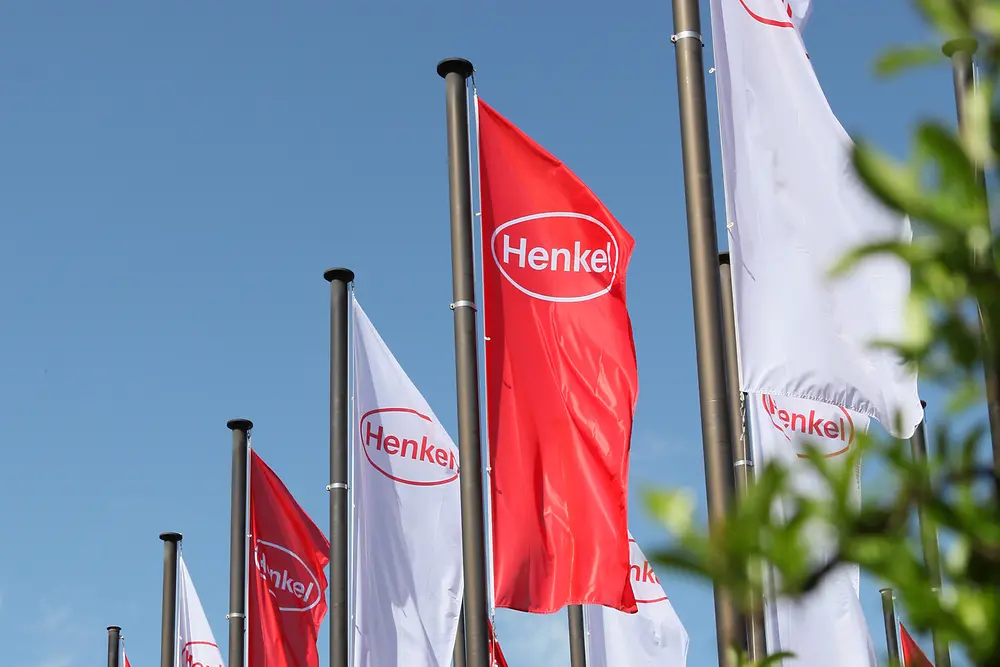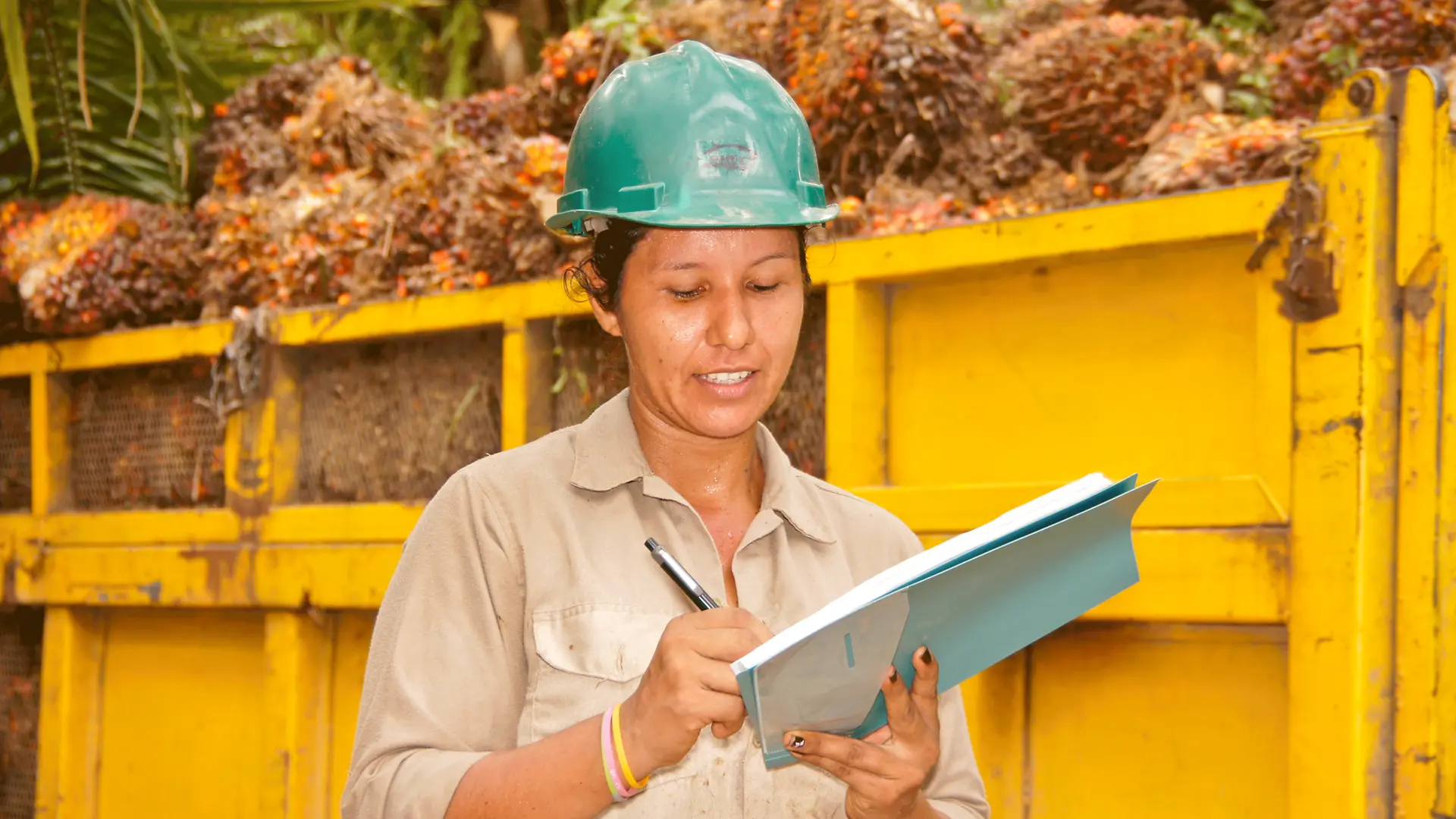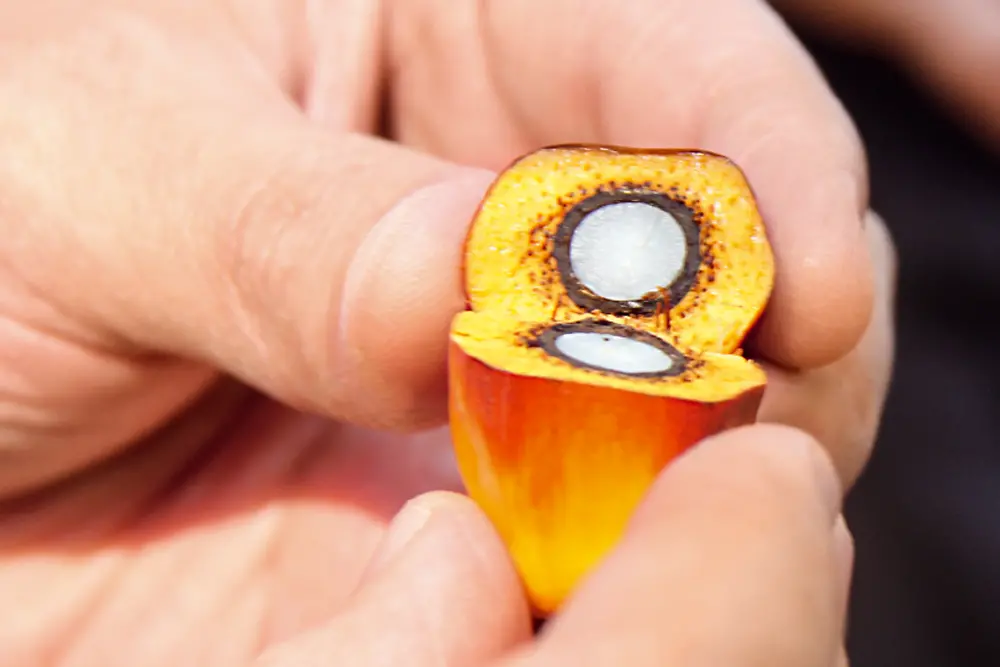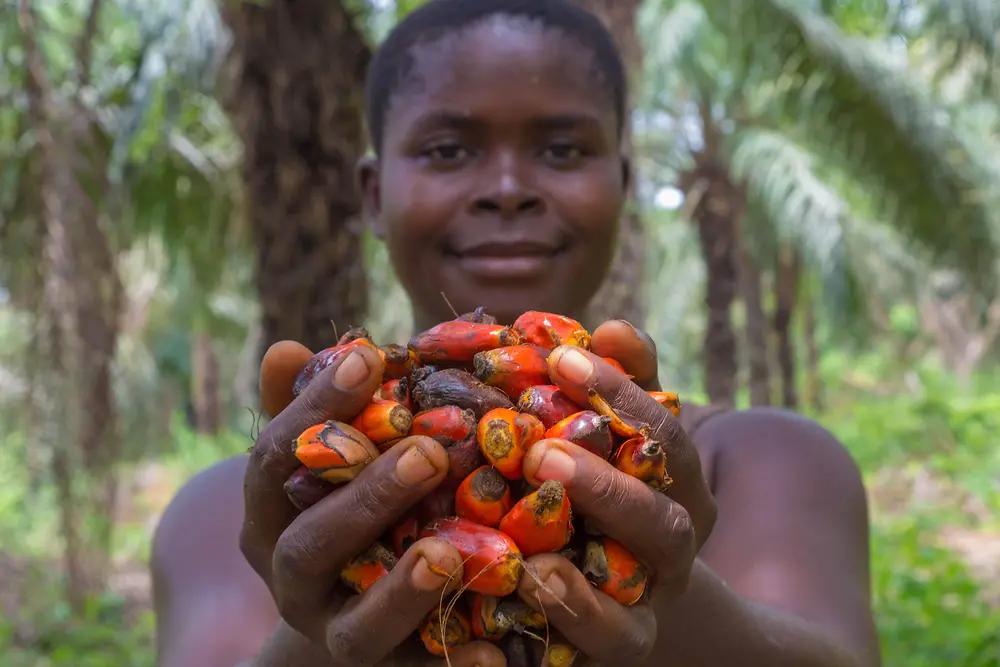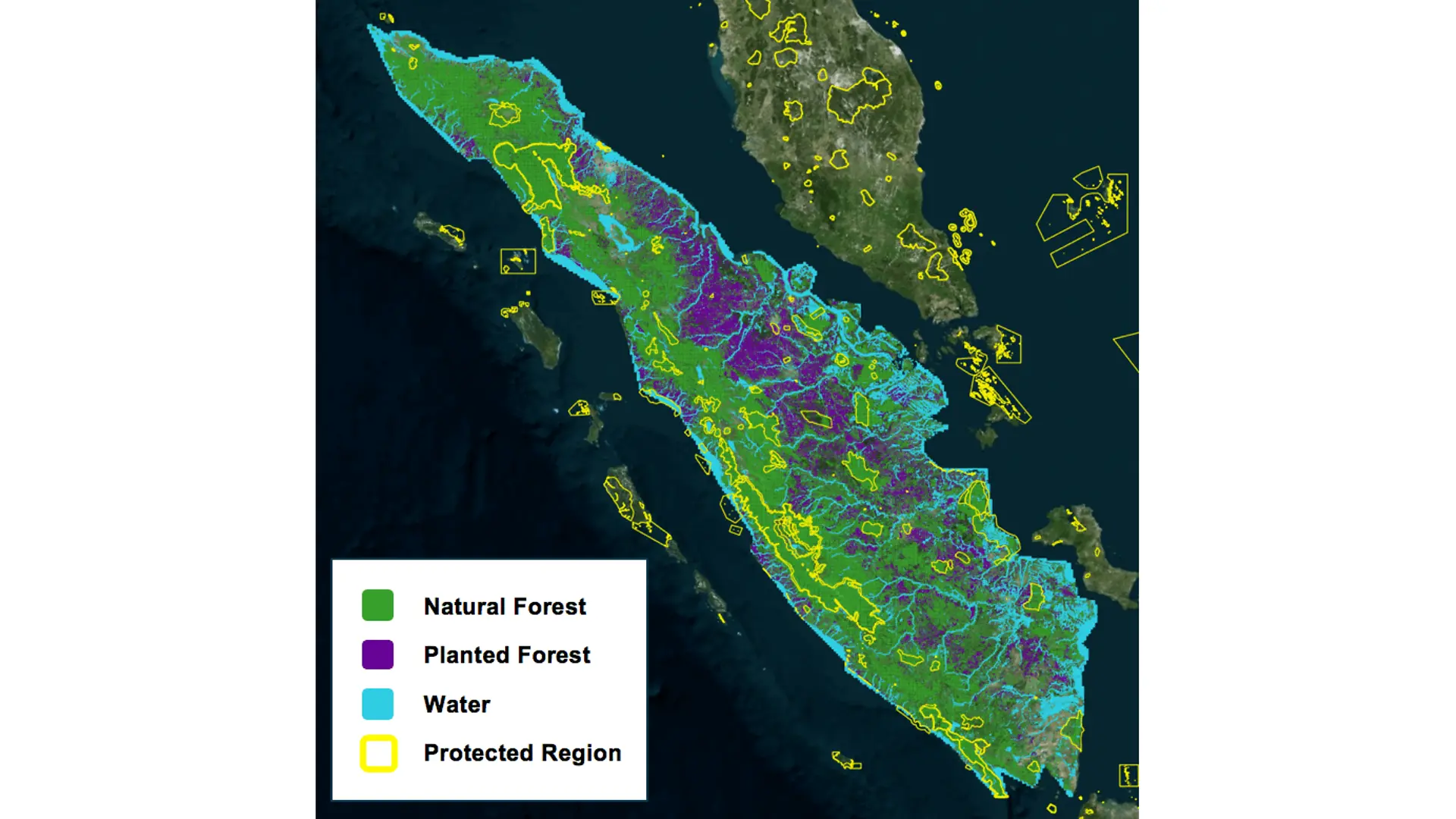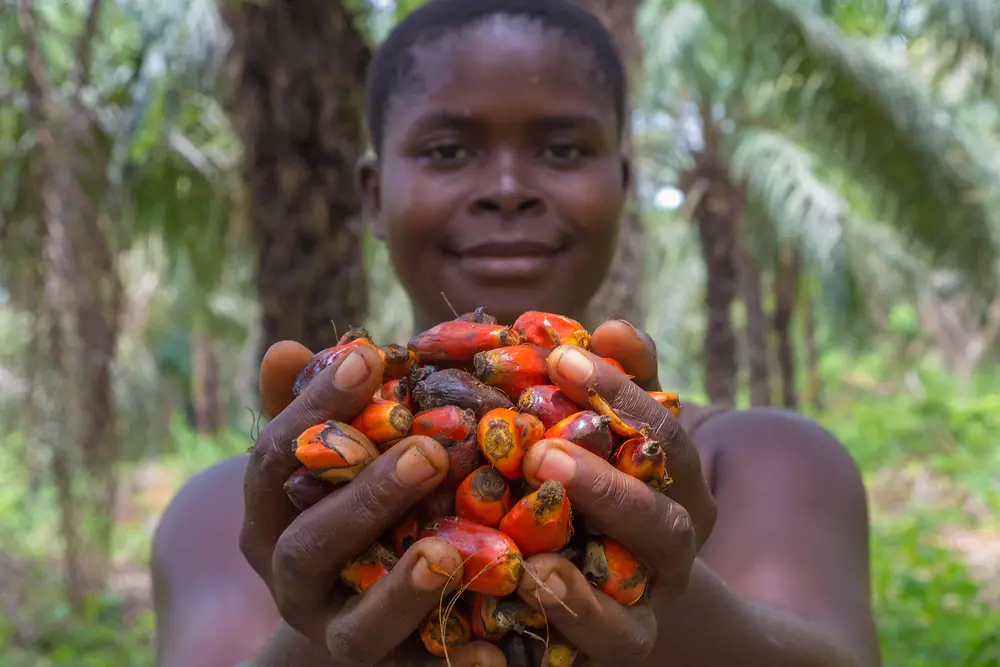That’s why Henkel is a founding member of the cross-industry initiative Action for Sustainable Derivatives, for example, which brings together more than 25 companies with the shared goal of generating more transparency in the palm value chain. On top of this, we work closely with our suppliers to map our direct and indirect supply chain. This involves new levels of openness and trust when sharing information based on compliance.
“There is a high common interest in the traceability of our palm kernel-based ingredients, as this is the only way we can take responsibility along the supply chain and ensure ecological balance,” says Christine Schneider, Senior Manager Global Sustainability in the Laundry & Home Care business unit. “Right now, Henkel can trace 75 percent of its materials back to the mill. By 2025, we want to achieve full traceability. We know that will only be possible if we collaborate, invest and openly embrace a wide range of innovative solutions.”
Transparency and traceability are the keys to ensuring sustainable agricultural practices and fair labor conditions in the palm oil industry. That’s why Henkel is a founding member of Action for Sustainable Derivatives (ASD), an initiative that brings together companies to collectively tackle supply chain issues around palm oil.
Mobile mapping for true traceability
One example of this approach is our pilot project with the US-based tech company Orbital Insight. Its technology anonymously collects GPS data from cell phones, then uses it to work out which oil palm plantations are most likely to be supplying a mill by identifying patterns in how trucks travel around the local area. The analysis can also be matched with maps from Global Forest Watch to identify restricted or protected areas and prove that no GPS data from cell phones was detected within a certain timeframe. This technology is especially valuable during a global pandemic because it doesn’t require face-to-face interactions like on-site audits.





